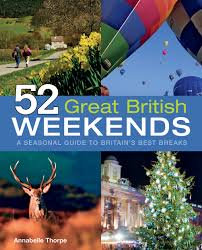How to Break Up with Your Phone by Catherine Price
Written by Ashley Kelmore, Posted in Reviews
Four Stars
Best for: Anyone who realizes that their phone has become less of a tool and more of an additional appendage.
In a nutshell: Catherine Price provides evidence for the dangers of too much phone use, and offers an EFFECTIVE (in my experience) 30-day program to be more intentional in our use of it.
Worth quoting:
“Smartphones have infiltrated our lives so quickly and so thoroughly that we have never stopped to think about what we actually want our relationships with them to look like.”
“What reward are you hoping to receive, or what discomfort are you trying to avoid?”
Why I chose it: I don’t have a job right now, and I find myself with more free time. I don’t want to spend it staring at my phone. Additionally, having moved from friends yet again I’m trying to balance how to stay engaged with them across continents and time zones while still engaging with the life I’m living here, now.
Review:
This book has the potential to be a game changer for me and, hopefully, for you, if you find the topic interesting. Part of it focuses on social media (and this is obviously an issue close to readers and staff at Pajiba http://www.pajiba.com/think_pieces/facebook-is-a-filthy-cesspit-of-fake-news-and-narcissistic-validation-im-so-glad-i-deleted-my-account.php), but in general it focuses on why we use our phones and what our use may be doing to us.
That first quote up there really gets to the heart of why this book is so effective: while at some point during the break-up you do go 24 hours without your phone (I did it Saturday morning – Sunday morning, and I’m still here), it isn’t REALLY about giving up your phone forever. It’s about being more intentional with your time; specifically how you can get your phone working for you.
Price spends the first half of the book convincing the reader of all the ways our phones fuck with our heads. From interrupting relationships (how many of us whip out our phones when meeting up with friends), to abbreviating our attention spans, to just generally wasting our time, phones aren’t doing us a whole lot of favors. But this book isn’t pushing the reader to throw our our phones; it’s about, again, paying attention to when we use our phones and way.
For me, my phone is part tool: it helps me get around my new city, it helps me figure out what the fuck it means when the weather tells me it’s going to 9 today (oh how I miss Farenheit); it lets me keep track of our budget. It’s also a way to stay in touch: Whatsapp has become a great way to stay connected to family back in the US; Slack keeps one group of friends sharing photos and links; texts let me know when the furniture is being delivered.
It’s also been (until now), a way to play around with social media. I have three Twitter accounts: a professional one with my legal name, a personal one with a user name, and one for my website. I follow a lot of news organizations on the professional one; my personal one is where I follow more opinion writers. It’s how I’ve felt connected to the world. I also had Facebook on there, and Instagram. And email.
Now? I still have Instagram and some news apps, but all the twitter apps I had are gone, as is Facebook. I still log in from my phone, but I have to actually LOG IN. I can’t just flip in open. As part of the 30-day process, Price suggests downloading a time usage tracker; I used OFFTIME, and it’s been shocking and illuminating. It has all sorts of tricks, like setting up a schedule for when your phone is in lock down and when it isn’t, and it also tracks the amount of time you’re spending on your phone.
Part of the process also involves turning off all (or nearly all) notifications. So I still have news apps, but none of the notifications are turned on. I have email, but I have to actually open the app to see if I have new messages. I still get notifications for texts / Whatsapp / slack, but I don’t feel as beholden to it.
There are other great steps, like making the bedroom a phone-free zone (she recommends buying an actual alarm clock; I have a watch that I can use that way, so that was an easy fix for me), and making dinner a phone-free zone as well. I’ve decided to make all meals phone-free as much as possible, and I’ve started turning my phone off at 9PM on weeknights.
Price recognizes that our phones are connections to the world in many ways, and she doesn’t judge the reasons people use them. She just wants us all to make sure we are using them the ways we want. If scrolling through Twitter for 20 minutes after the washing up is done in the evening is a good way for you to relax, then go for it! But set a time limit before the entire evening goes away. Replace that time with things you want to do – maybe instead of spending an hour on Facebook, you can spend an hour learning to draw, or playing a game with your partner.
I’m still a little worried, and still sorting out exactly what relationship I want with my phone. For the past 14 months since the 2016 election I’ve felt that I need to be on social media to know what’s going on so I can be a good activist. But I’ve taken that too far, and it’s not helping anyone or anything. I’m not going to delete my accounts, but I am going to take advantage of things like lists so that I can be more intentional about what I’m reading, and set aside specific times to read them.
I love my phone. It has so many features and ways that improve my life. My partner makes his livelihood off of mobile games (and has since moved to a company that has a philosophy about gaming that better matches intentional usage as opposed to time- and money-sucking addictive behavior), so I’m certainly not about to suggest that games are bad. I don’t think any component is really bad on it’s own; it’s about how we make use of it. It’s about living a more intentional life, and this book is just one tool to help get there.






